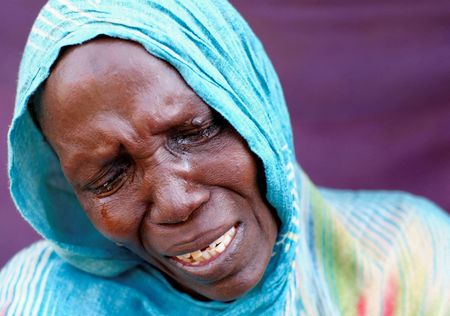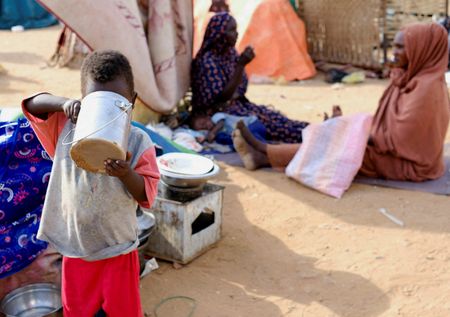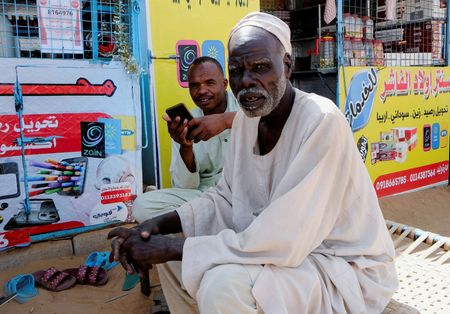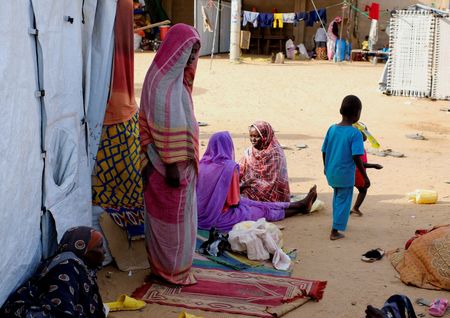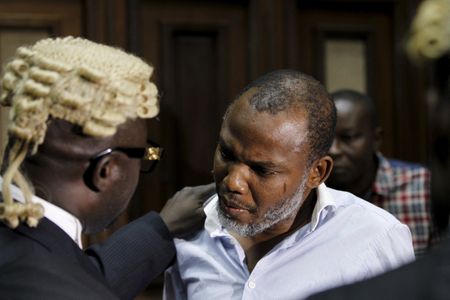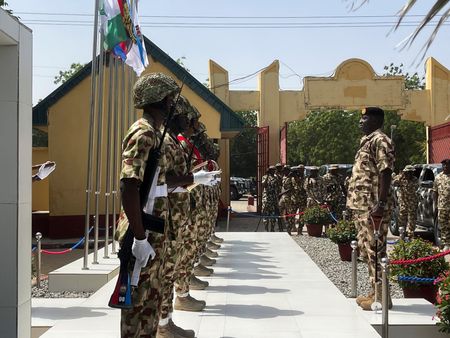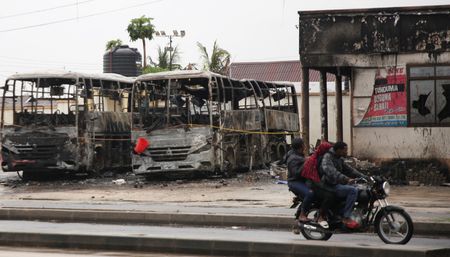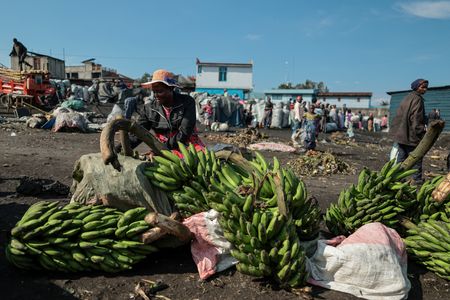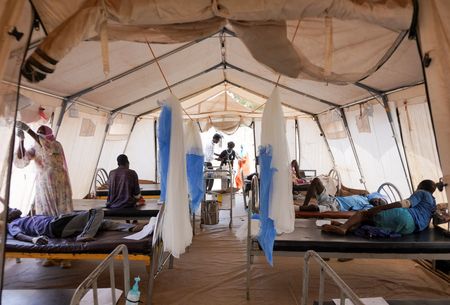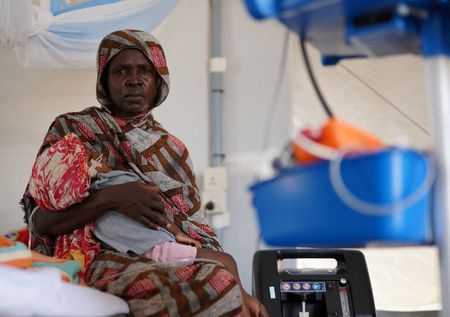By Nafisa Eltahir
AL-DABBA, Sudan (Reuters) -Civilians in al-Fashir were shot in the streets, targeted in drone strikes and crushed by trucks, witnesses to the first days of the RSF’s takeover described to Reuters, providing a glimpse into the violent capture of one of Sudan’s largest cities.
The fall of al-Fashir on October 26 has cemented the Rapid Support Forces’ control of the Darfur region in its two-and-a-half-year war with the Sudanese army. Videos of soldiers killing civilians on the outskirts of the city and reports of attacks on those escaping have raised international alarm.
But less is known about what happened inside al-Fashir, which has been cut off from telecommunications since the start of the RSF offensive. Reuters spoke to three people who fled to the city of al-Dabba, more than 1,000 km away in northern Sudan, and one person who fled to the nearby town of Tawila.
One witness said he was in a group trying to flee intense shelling when RSF trucks surrounded them, and sprayed civilians with machine-gun fire and crushed them with their vehicles.
“Young people, elderly, children, they ran them over,” said the witness, who did not want to give his name for fear of retribution, speaking by phone from Tawila. Some civilians were abducted by RSF fighters, he said.
Asked for comment, an RSF leader told Reuters investigations were underway and anyone proven to have committed abuses would be held accountable, but that reports of violations in al-Fashir had been exaggerated by the army and its allies.
‘FIFTY OR SIXTY KILLED IN A SINGLE STREET’
The killings continued on the second day of the RSF offensive, said another witness named Mubarak, now in al-Dabba. RSF fighters raided homes in residential areas having captured the army’s base the day before, he said.
“Fifty or sixty people in a single street… they kill them bang, bang, bang. Then they would go to the next street, and again bang, bang, bang. That’s the massacre I saw in front of me,” Mubarak said. Many people, often injured or elderly, didn’t leave the city and were killed in their homes, he said.
Local resistance fighters, largely armed young men, were in the streets fighting the offensive, with army soldiers and allied fighters in bases or retreating.
“They were the ones who died more,” he said.
Anyone out in the street was “targeted by the drones and a lot of bullets,” Mubarak said. Al-Fashir residents have reported drones following civilians and targeting any gatherings in recent months.
Another eyewitness, Abdallah, who spoke to Reuters in al-Dabba, said he also saw fleeing civilians targeted by drones. He said he saw 40 dead bodies on the ground in one location in al-Fashir.
Reuters could not independently verify their accounts, though they broadly correspond to reports from aid officials, the United Nations and verified social media videos.
SATELLITE IMAGERY
Satellite imagery reported by Yale’s Humanitarian Research Lab last week showed objects consistent with dead bodies in several parts of al-Fashir. Further images showed earth disturbances that suggested mass graves and the disappearance of objects and presence of large vehicles that suggested the movement of bodies, people, or looting, it said this week.
Imagery also indicated the RSF had closed off a main exit point from the city, leading to the town of Garney.
Traumatised civilians are still trapped inside al-Fashir, said U.N. human rights chief Volker Turk on Friday. “I fear that the abominable atrocities such as summary executions, rape and ethnically motivated violence are continuing,” he said.
On Thursday, the RSF said it had agreed to a proposal from the United States and Arab powers for a humanitarian ceasefire and said it was open to talks on a cessation of hostilities. On Friday morning, the paramilitary force launched drone attacks on the capital Khartoum and the city of Atbara, eyewitnesses said.
Both the RSF and the Sudanese army have agreed to various ceasefire proposals during their war, which has created widening pockets of famine, including in al-Fashir. None have succeeded.
TREACHEROUS ESCAPE
Those who managed to leave al-Fashir have reported treacherous journeys with violent RSF searches, the disappearance of men, and kidnappings for ransom.
Umm Jumaa made it to al-Dabba with four of her grandchildren, but hasn’t been able to find her two sons, both army soldiers, or her daughter. Before she fled al-Fashir she witnessed RSF fighters beating civilians to death, she said.
“Those who didn’t die, they would say, ‘finish them off, finish them off, this one isn’t dead, finish him off.'”
(Reporting by Eltayeb Siddig in al-Dabba, Nafisa Eltahir, and Khalid Abdelaziz; Writing by Nafisa Eltahir; Editing by Ros Russell)

